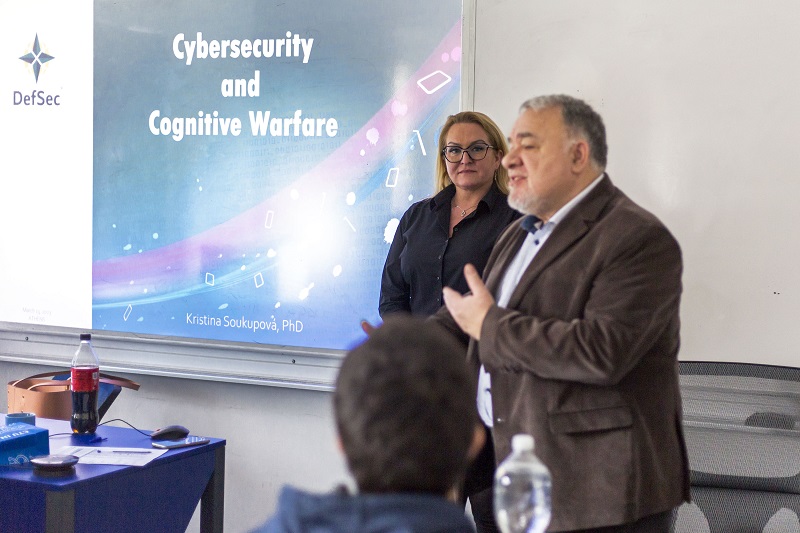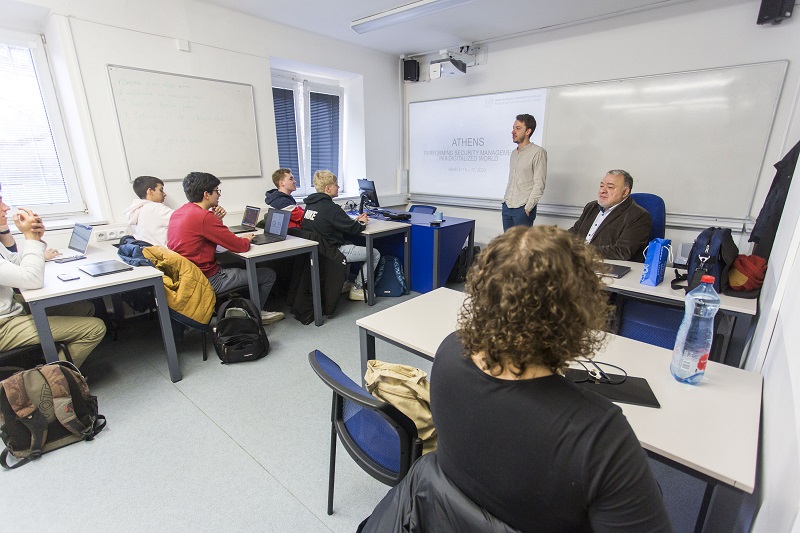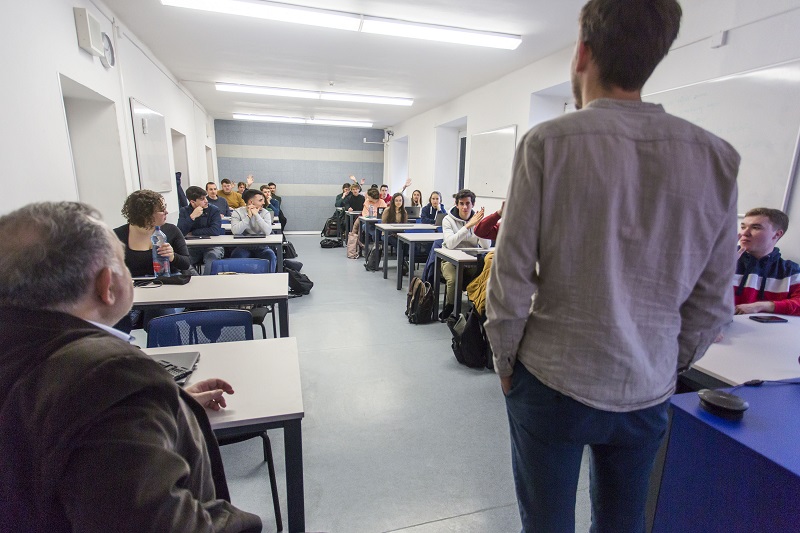MIAS actively participated in ATHENS project with a course on security risks associated with modern technologies
On Monday, March 13, 29 students from foreign partner universities involved in ATHENS project gathered at MIAS to attend lectures on security issues throughout the week. The aim of the course called „Performing Security Management in a Digitalized World “, is to introduce its participants to the most common security threats that are associated with the use of modern technologies and the sectors that are most affected by them. In addition to the theoretical lectures, the course is enriched with the lectures of company representatives who will demonstrate possible security risks, their identification and methods leading to their elimination in real cases.
During the week, students will thus have an opportunity to become familiar with the issue of cognitive warfare (company DefSec), they will find out what challenges truck manufacturers have to face (company Renault Trucks), what is the contribution of space industry to the security of Europe (company RHEA Group) and what dilemmas autonomous car manufacturers have to deal with (company Valeo). Last but not least, they will look into the issue of green transformation of Czech coal regions which also faces many threats. Each of them could have negative impact on the process of finding a successful solution. The last day of the course, Friday, March 17, will be mostly dedicated to a cyber security game (company M-COM), that will raise the participants´ awareness of the risks and security issues of modern computerized systems.
ATHENS courses are a joint-project of the consortium of 16 major European technical universities which also includes CTU in Prague. The aim of this project, in addition to supporting the mobility of students, is primarily the effort to offer students an opportunity to take part in highly specialized courses that are prepared especially for this occasion. The courses are held twice a year and students receive credits for attending them.
MIAS joined ATHENS project after a hiatus of several years and prepared a course that immediately met with great interest and whose capacity was filled very quickly. Students of 7 different nationalities representing 6 foreign universities applied. The largest number of participants are from Portugal, Belgium and Poland.
 |
|
 |
 |
